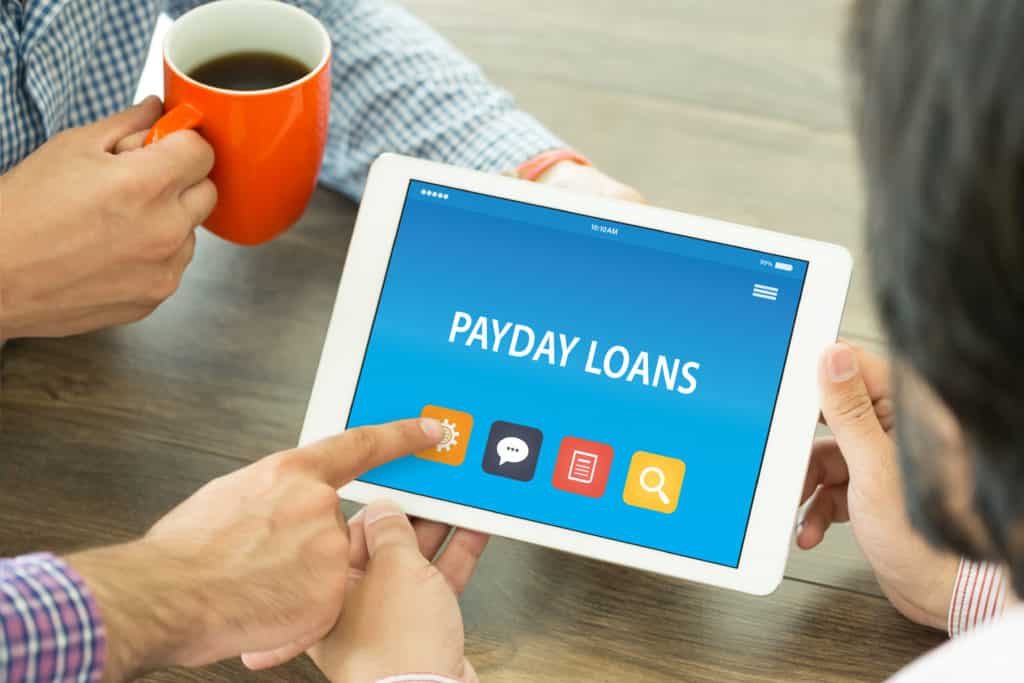Payday loans are dangerously easy to get. You only need a bank account, proof of income and a photo ID to be eligible. But payday loan borrowers are often confused about the type of loan they are getting and whether it’s a secured or unsecured loan.
Table of Contents
Our take
- Payday loans are considered unsecured loans because collateral is not required
- Despite this, payday loans can often feel like secured loans because technically your next paycheck is the collateral
- You should not have to provide anything other than a postdated check or bank account information to qualify for a payday loan
- Payday lenders have no asset to seize if a borrower defaults on a payday loan
- This leaves debt collection efforts, lawsuits and wage garnishment as lenders’ only real options to get paid if you default
Stuck in payday debt?
DebtHammer may be able to help.
Payday loans are unsecured debt
A payday loan is classified as unsecured debt, so it’s a fast way to come up with some quick money — you don’t have to leave home, and you can qualify even if you have a bad credit score — and there’s no need to risk anything valuable as collateral.
Sounds ideal, right? However, payday loans are actually very dangerous.
Though it’s an unsecured debt, a payday loan can feel like a secured debt because the collateral is your next paycheck. You generally will be required to pay off your payday loan within a couple of weeks — or by your next payday — which can be pretty tough.
The high interest rates and unrealistic repayment schedules leave borrowers trapped in a cycle of debt. More than 90% of Americans end up regretting their original payday loan.
READ MORE: Pros and cons of payday loans
Secured vs. unsecured loans: What’s the difference?
Let’s start with the basics:
- Secured loans are protected by an asset, usually some form of collateral, in case you fail to make the payments. For example, car loans and mortgages are secured loans. Your car or home is the collateral if you default on your loan, and if you fail to make your payments, you could lose your collateral.
- Unsecured loans are made without any form of collateral. Essentially, all that’s required is a promise to repay the money. While that might sound ideal for the borrower, this comes with its own disadvantage — you’ll pay higher costs to borrow.
READ MORE: How unsecured loans work
Payday loans vs. secured loans
A payday loan — sometimes called a cash advance loan — is usually short-term, has few requirements, and doesn’t require a credit check. The loan amounts are usually small.
No collateral is required
Though you have to provide bank account information or a postdated check when you get a payday loan, these are not considered collateral because a lender can’t seize them if you default. The only way a payday lender could force you to repay is to take you to court and request wage garnishment.
With secured loans, once you miss a certain number of payments, the lender will take your asset, usually through repossession or foreclosure. No lawsuit is required.
READ MORE: In over your head with payday loans? Learn how to escape the debt trap
Pro tip: Some borrowers erroneously believe that payday loans are secured because lenders require access to your bank account or a postdated check. However, borrowers can rescind that access or stop payment on the postdated check as soon as the loan funds are deposited.
READ MORE: What you need to know about payday loan interest rates
Look for better alternatives
Before taking out any loan, establish a clear repayment plan.
If you’re certain you won’t be able to meet the payday loan repayment deadline, don’t take out a payday loan. Go to a credit union and apply for a Payday Alternative Loan instead, or take a few hours to research your other options, like cash advance apps.
Payday lenders count on borrowers being unable to pay back the first loan. Then the borrower will have to take out another loan with another set of high fees. This leaves borrowers caught in a debt trap that’s difficult to escape.
READ MORE: Practical payday loan alternatives
The bottom line
A payday loan is an unsecured debt, but the loans can quickly make you feel like you’re using your own wages as collateral. Payday loans should only be considered as a last resort and only if you’re completely certain you can pay the loan off when scheduled. Don’t even consider turning to a payday lender until you’ve explored other financial services and exhausted all of your other options.


